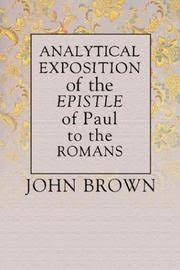
__________________________________________________________________
Definition
1. Exposition is a text that elaborates the writer‘s idea about the phenomenon surrounding. Its social function is to persuade the reader that the idea is important matter.
2. Examining or liking to examine things very carefully (Cambridge).
Purpose of Analytical Exposition
1. To attempt to persuade the reader to believe something by presenting one side of the argument.
2. To reveal the readers that something is the important case.
Generic Structure of Analytical Exposition
a. Thesis: Introducing the topic and indicating the writer’s position.
b. Arguments: Explaining the arguments to support the writer’s position.
c. Reiteration: Restating the writer’s position.
Language Features of Analytical Exposition
1. Focus on generic human and non-human participants, (e.g.: car, pollution, leaded petrol car)
2. Use abstract noun, (e.g.: policy, government)
3. Use of relational processes, (e.g.: It is important)
4. Modal verbs, (e.g.: we must preserve)
5. Modal verbs, (e.g.: we must preserve)
6. Connective or Use of internal conjunction to state argument, (e.g.: first, secondly, then, finally)
7. Evaluative language, (e.g.: important, valuable, trustworthy, etc.)
8. Giving reasons through causal conjunction
(e.g. so, thus, therefore, hence)
9. Use of present tense
10.Passive sentence
The difference of analytical and hortatory exposition Text
Definition
Analytical Exposition is a text that elaborates the writer‘s idea about the phenomenon surrounding. Its social function is to persuade the reader that the idea is important matter.
Purpose
To reveal to the readers that something is the important case
Generic structure
Thesis, (I personally think, In my opinion, I believe, etc. )
Arguments,(First, Second, Furthermore, In addition, The last, etc)
Reiteration (In my conclusion, Based on the arguments above, )
Hortatory Exposition
Hortatory exposition is a text which represent the attempt of the writer to have the addressee do something or act in certain way.
Purpose
To persuade the readers that something should or should not be done
Generic structure
Thesis, (I personally think, In my opinion, I believe, etc)
Arguments,(First, Second, Furthermore, In addition, The last, etc)
Recommendation (should, should not, ought to, ought not to, )
Example Text
Laptop as Student’s Friends
Thesis
Conventionally, students need book, pen, eraser, drawing book, ruler and such other stuff. Additionally, in this multimedia era, students need more to reach their progressive development. Students need mobile keyboards to record every presented subject easily. Of course it will need more cost but it will deserve for its function.
Argument 1
First, modern schools tend to apply fast transferring knowledge because the school needs to catch the target of curriculum. Every subject will tend to be given in demonstrative method. Consequently students need extra media cover the subject. Since there is a laptop on every student’s desk, this method will help student to get better understanding.
Argument 2
Secondly, finding an appropriate laptop is not difficult as it was. Recently there is an online shop which provides comprehensive information. The best is that the shop has service of online shopping. The students just need to brows that online shop, decide which computer or laptop they need, and then complete the transaction. After that the laptop will be delivered to the students’ houses. That is really easy and save time and money.
Reiteration
From all of that, having mobile computer is absolutely useful for students who want to catch the best result for their study. Buying laptop online is advisable because it will cut the price. This online way is recommended since online shop also provides several laptop types . Students just need to decide which type they really need.
0.000000
0.000000













